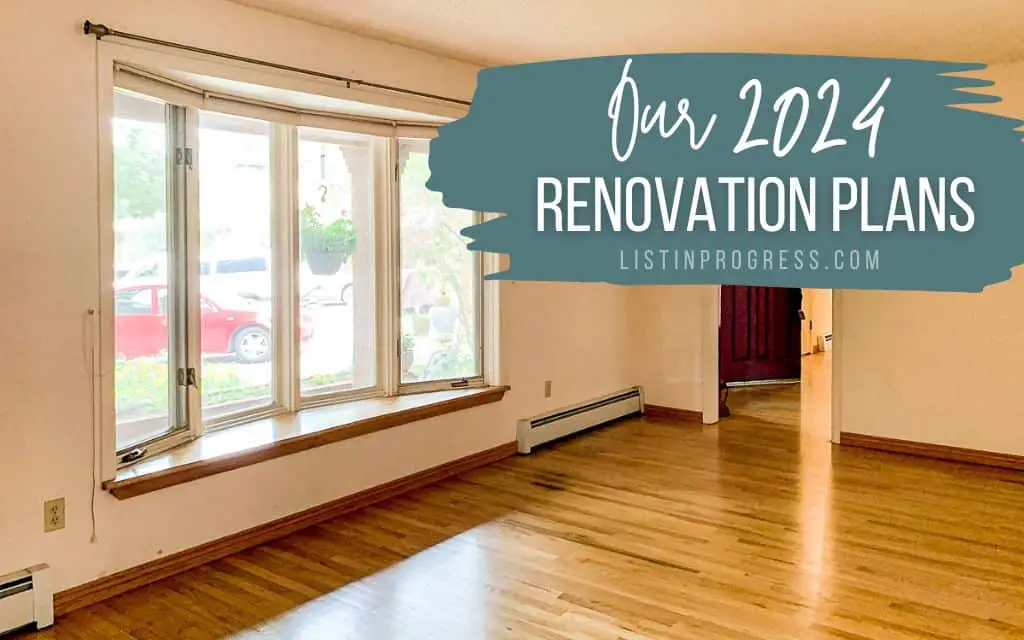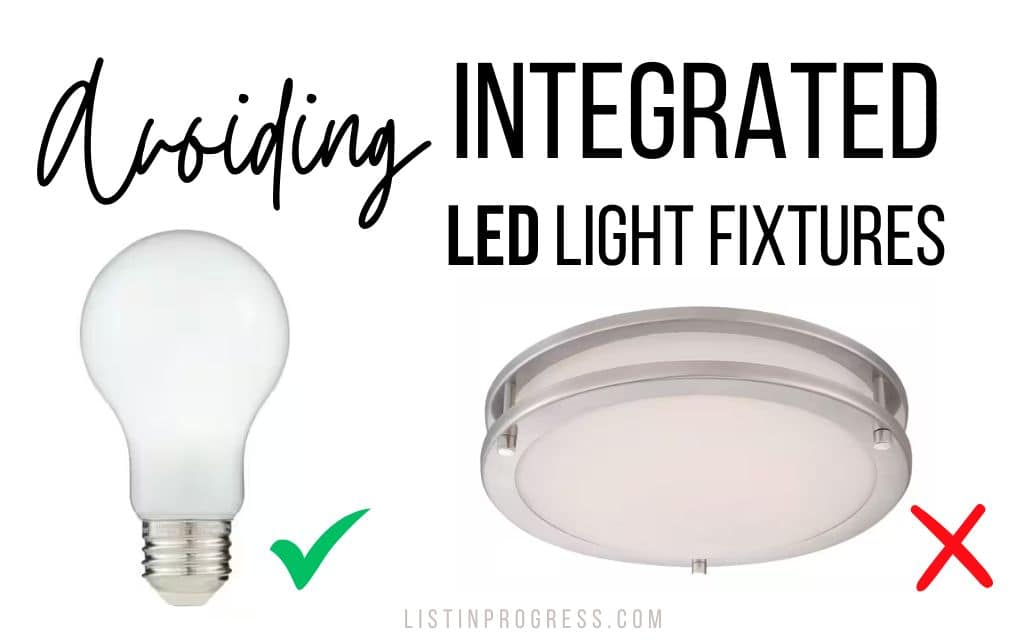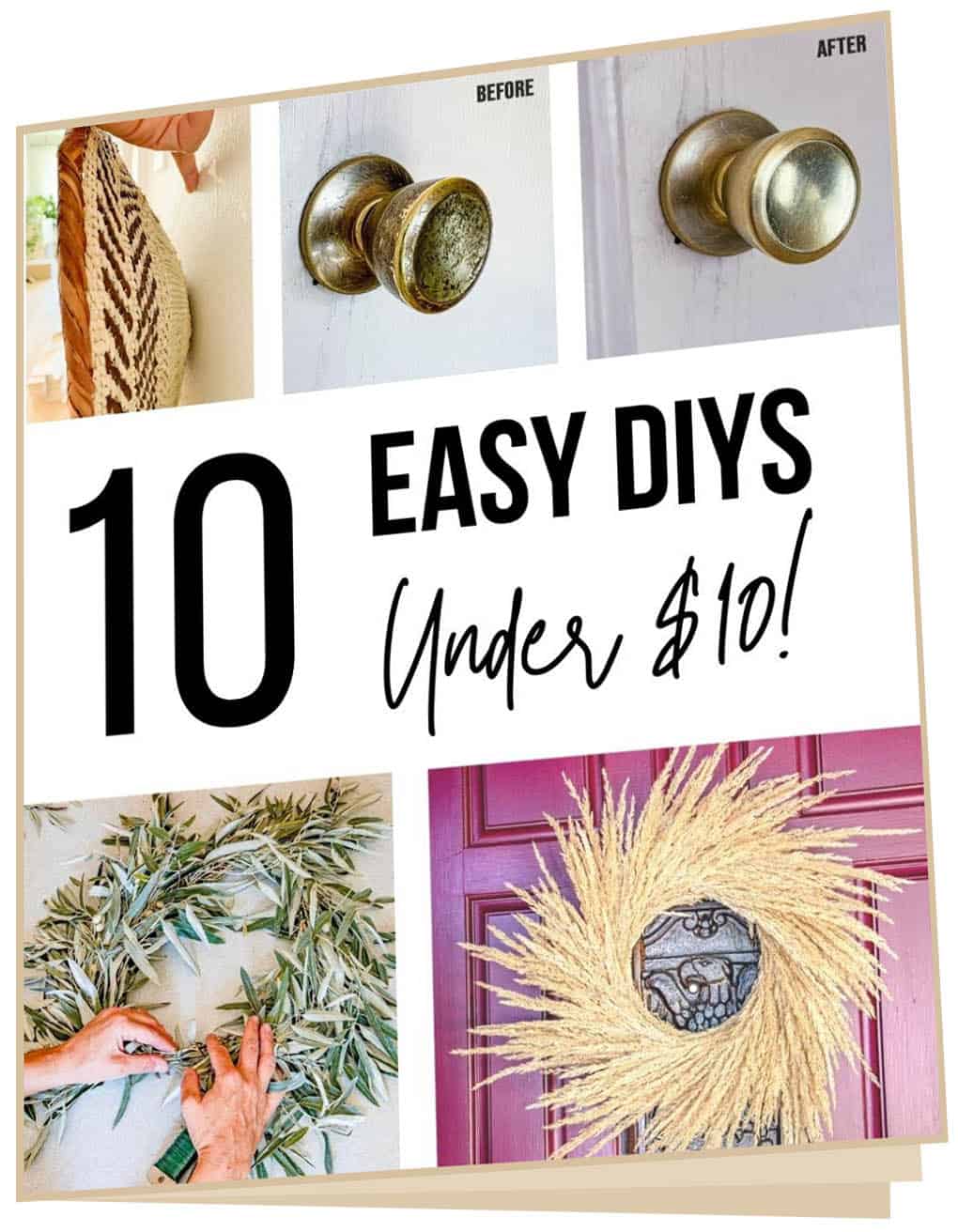If you have questions about integrated LED light fixtures as you’re shopping for lighting, you’re in the right place. Integrated LED fixtures have taken the marketplace by storm and they are not the brilliant solution retailers want you to believe.
Who knew that such a popular innovation in lighting could be so troublesome?
In this blog post, I’ll explain the difference between LED bulbs and integrated LED light fixtures, explore the current drawbacks to the technology, and offer tips for finding the best lighting for your home.
Integrated LED Light Fixtures Vs. LED Bulbs
What’s the difference?
LED light bulbs are made to be twisted into standard light sockets.
Apples to apples, if you picture the classic incandescent bulb; these are similar, just more energy efficient. That’s a good thing!
When the bulb dies, you can replace it.
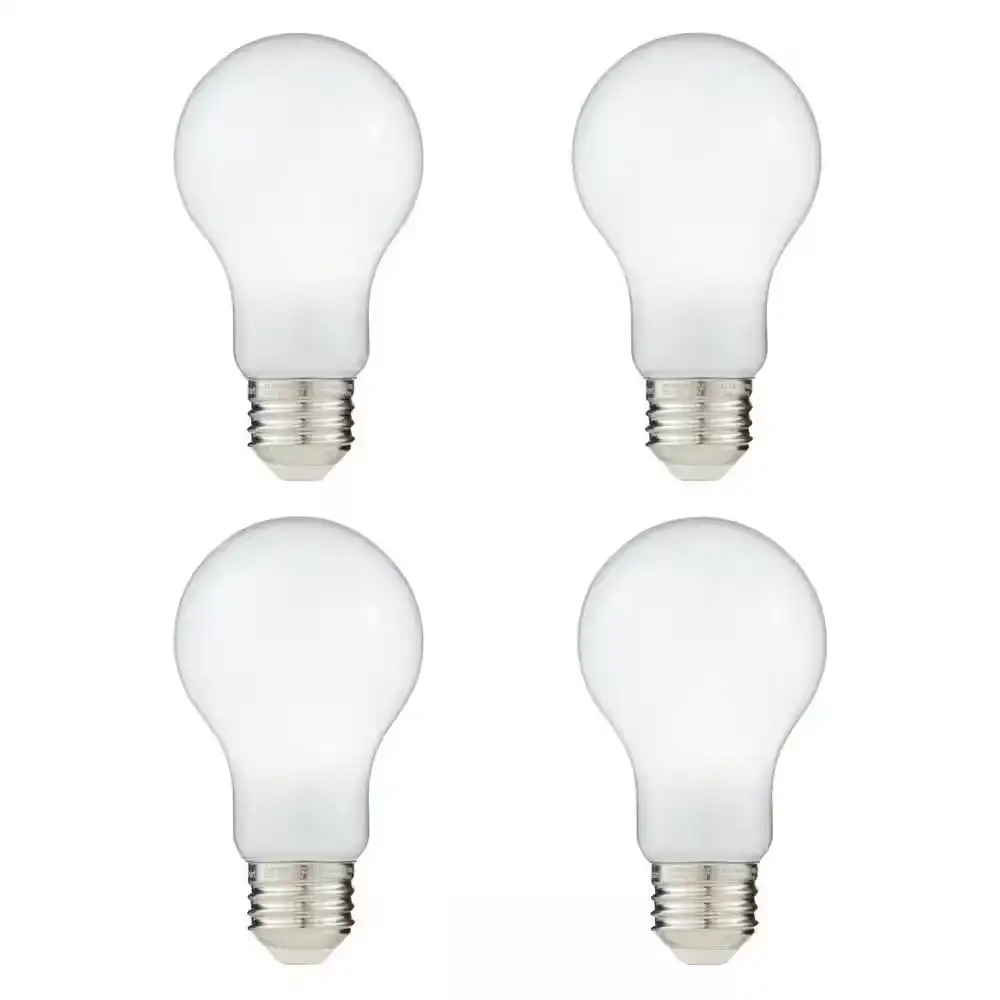
Integrated LED Light Fixtures
Integrated LED light fixtures are the whole enchilada. They are hardwired into an electrical box and the lighting component is a permanent part of the fixture.
You cannot change out the light component. There is no removable bulb.
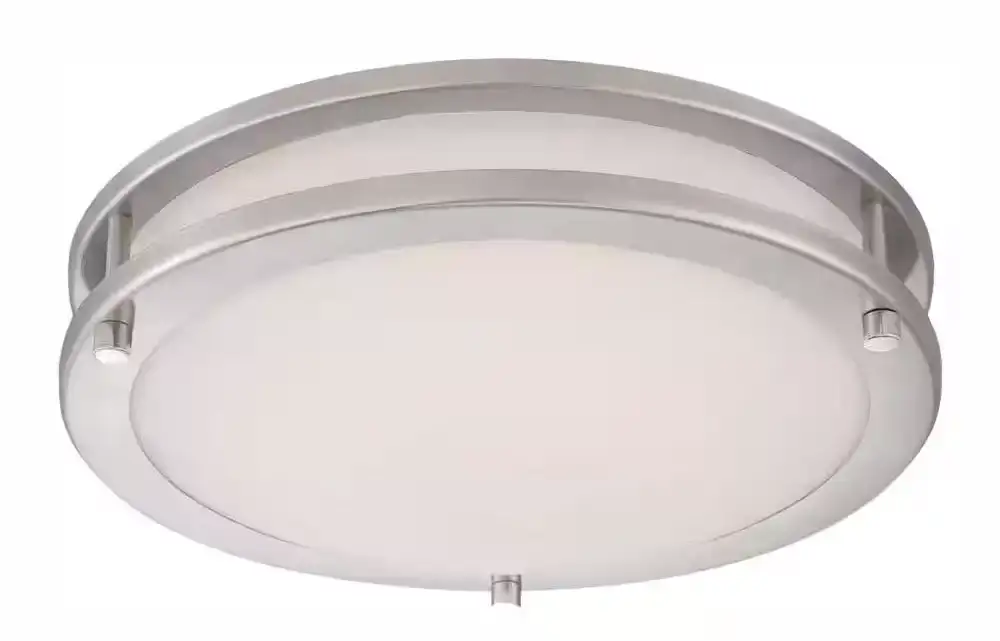
When the lighting component dies, the entire integrated LED light fixture is trash. Then you need to replace the entire thing.
If we could count on LEDs to reliably last 25+ years, as advertised, integrated LED lights would be great. It’s reasonable to expect homeowners to change out entire light fixtures every quarter century or so, right?
So here’s my beef: integrated LED lights cannot yet be relied upon to last their advertised lifespan.
Based on the number of LED bulbs I’ve replaced in the past 5 years, we’re clearly not there yet.
Here’s our dead integrated LED front porch light fixture. It came with the house.
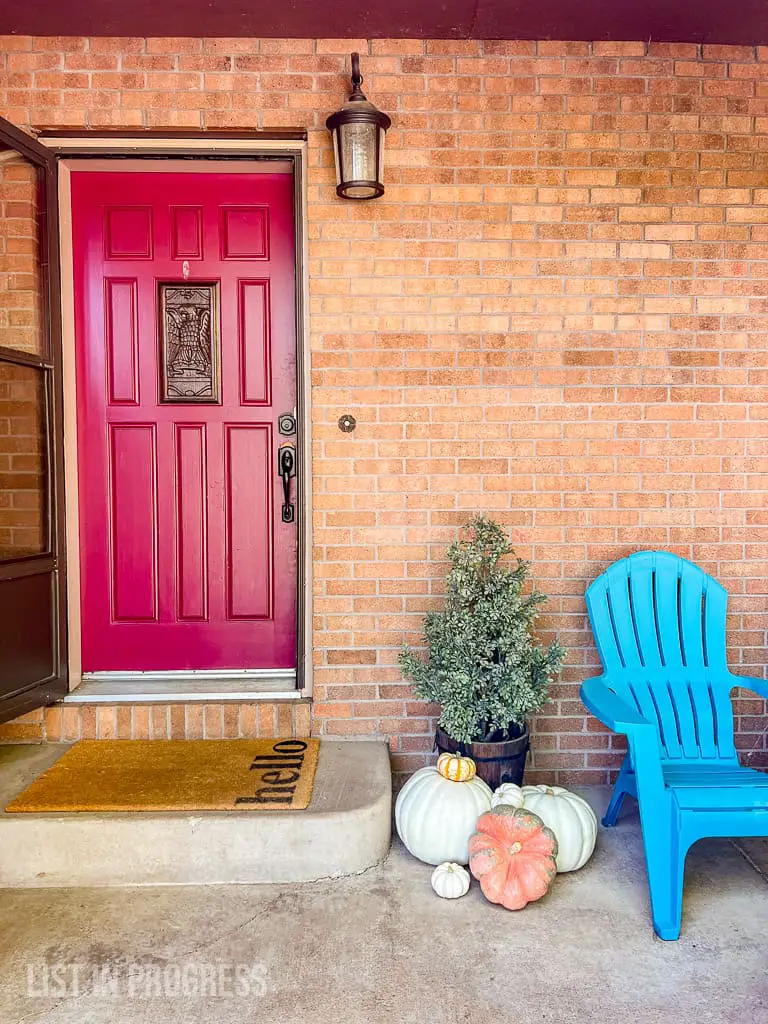
How Long Do LEDs Really Last?
LED lights have transformed the world of lighting, and most of the changes are good. LEDs are more energy efficient and therefore more cost-effective options in the long run, based on their advertised lifespan.
All good news.
So what’s the problem?
When they first came on the market, I remember LED bulbs were marketed to last 35 years. Now the best estimates are closer to 25 years, but it depends on the product.
Here’s the math on this lightbulb, which lists the lifespan as 25,000 hours. If the bulb is lit for 3 hours per day, that equates to 23 years of life. This product has a 10-year warranty, which is pretty good from what I’ve seen.
I would buy this.
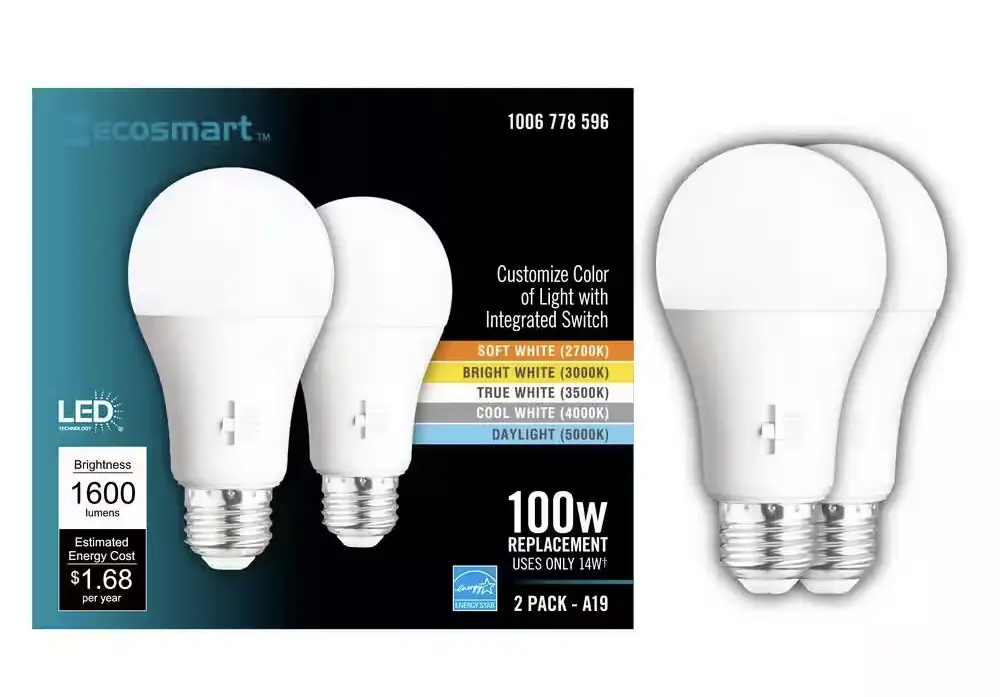
But… here’s why the lab-tested, 25-year lifespan is not 100% realistic or reliable – yet.
- LED lights function best in moderate temperatures; heat exposure over 85 degrees shortens the lifespan.
- The electrical system in your home has a huge impact on LEDs (power output too high for LEDs = shorter life)
- Quality control issues are also at play, considering that LEDs are largely manufactured in Asia for mass retail.
- The technology is still new; we haven’t had time to test these lights for 20-25 years in the real world. Those estimates are based on calculations in optimal lab conditions.
LED lighting is a fantastic innovation, and I continue to buy these LED bulbs. Yet, I still advocate for fixtures with replaceable bulbs and not integrated LED lights.
That’s just the technical side of the argument. Here’s another complication.
Understanding Color Temperature
Do you know the common light color temperatures and how they appear in your own home? Which color temperature is your preferred light for bedrooms? Dining rooms?
Warm white, soft white, bright white, and daylight are the standard light temperatures available in the marketplace. Some LED bulbs now offer color-changing ability, like the example above.
This chart shows the options on various LED bulbs from EcoSmart. Soft white is closest to warm white in their offerings.
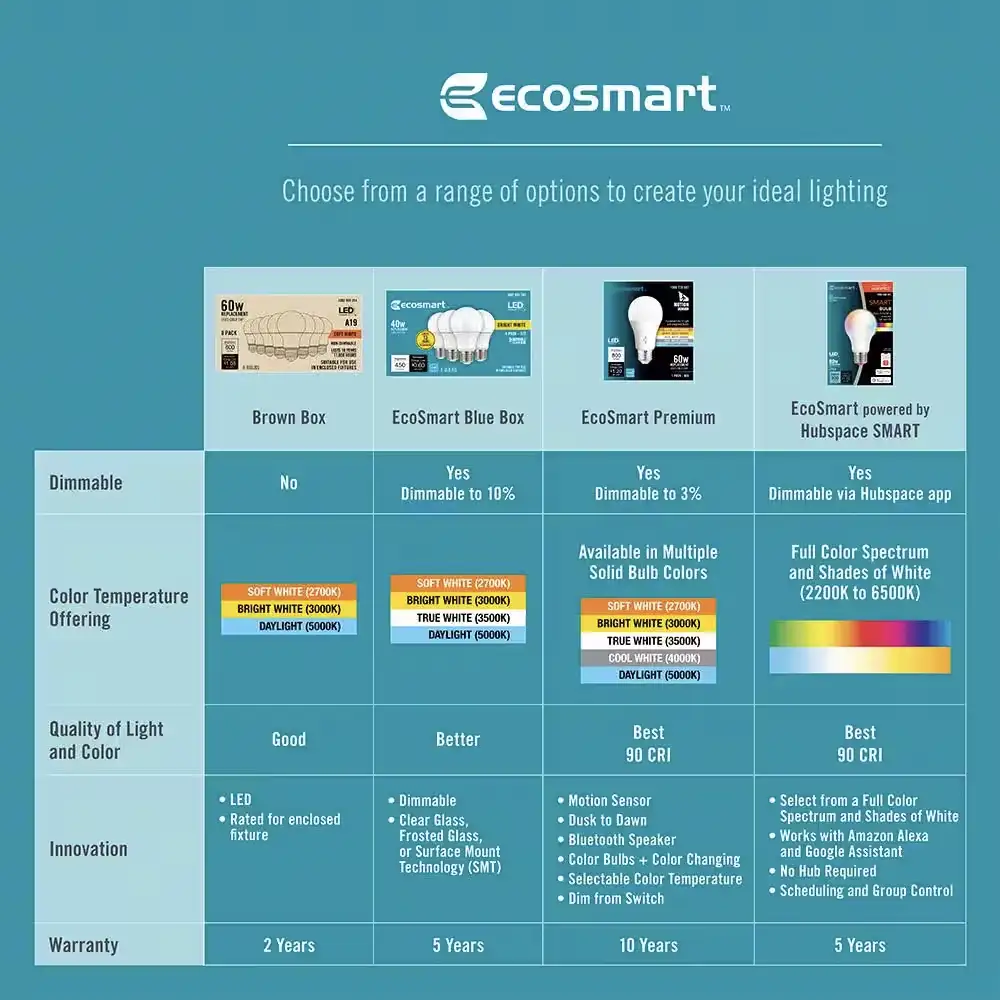
Integrated LED Lights Have Fixed Color Temps
The complication is when LED lights are integrated into fixtures; the color temperature is typically fixed.
Be sure you know the color temperature before committing to a permanent light fixture.
Consider which light temperatures work well in your space. It’s worth checking bulbs in your home before installing a new LED light, only to discover it’s too yellow, or too dim, or too bright.
You Might Also Like
2023 Ceiling Light Trends
61 Modern Flush Mount Lights from Amazon
24 Outdoor Ceiling Lights Under $120
Designer Lighting Dupes: Get the Look for Less
What the Reviews Say
If you think I’m exaggerating, please go read some reviews. Check the 1-star comments. Most of the 5-stars are recent reviews and likely won’t reflect a true measure of time and use.
I sorted integrated LED lights by top sellers on Home Depot’s website and chose the first two search results. Here’s what the reviews reveal.
Top-Selling Ceiling Fan w/LED Light
First, this LED ceiling fan is the top seller and has over 5,000 reviews, mostly very positive. It was hard to locate color temperature information, but I found “warm white,” the most yellow of the standard options.
As I’m typing this, the most recent 10 reviews within the past 4 months include complaints about not being able to replace the LED light component and about the color temperature. Both problems would be easy to solve if the light was not integrated.
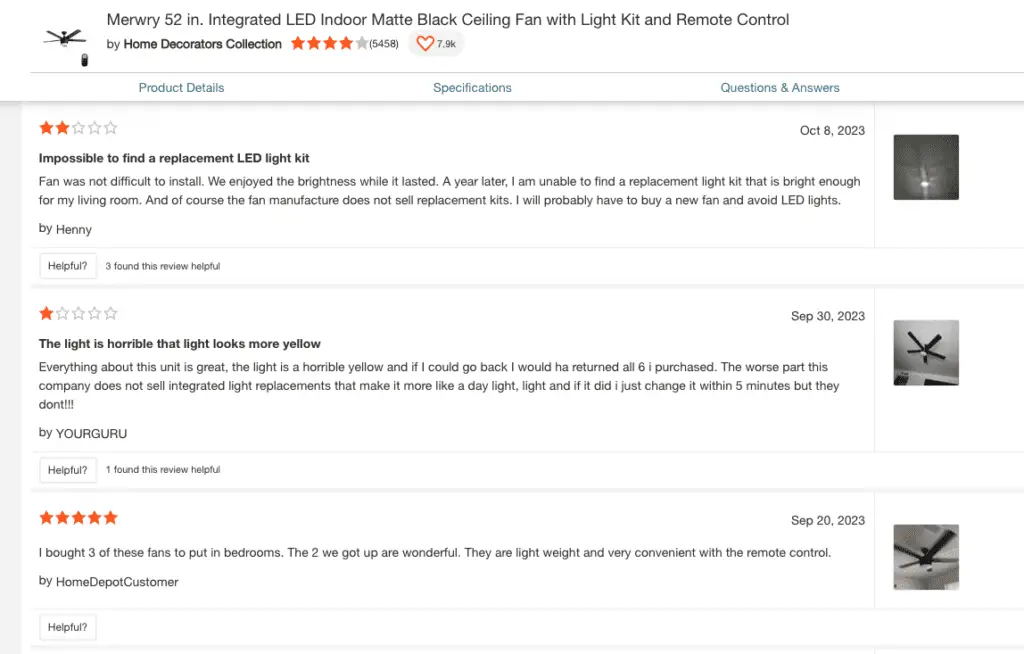
Top-Selling Integrated LED Flush Mount
Second, here’s the next best-seller from Home Depot. This integrated LED light costs $25 and the light color temperature is also warm white.
If you jump to the 1-star reviews, the complaints track with this blog post.
- The light is cheap and starts flickering within one year.
- Some lights have already died.
- A few complaints that the entire fixture must be replaced when the light dies. Surprise!
- Complaints about the color temperature, although that’s on the buyer to research.
Once again, all of those complaints could be resolved if the light allowed for bulb replacement.
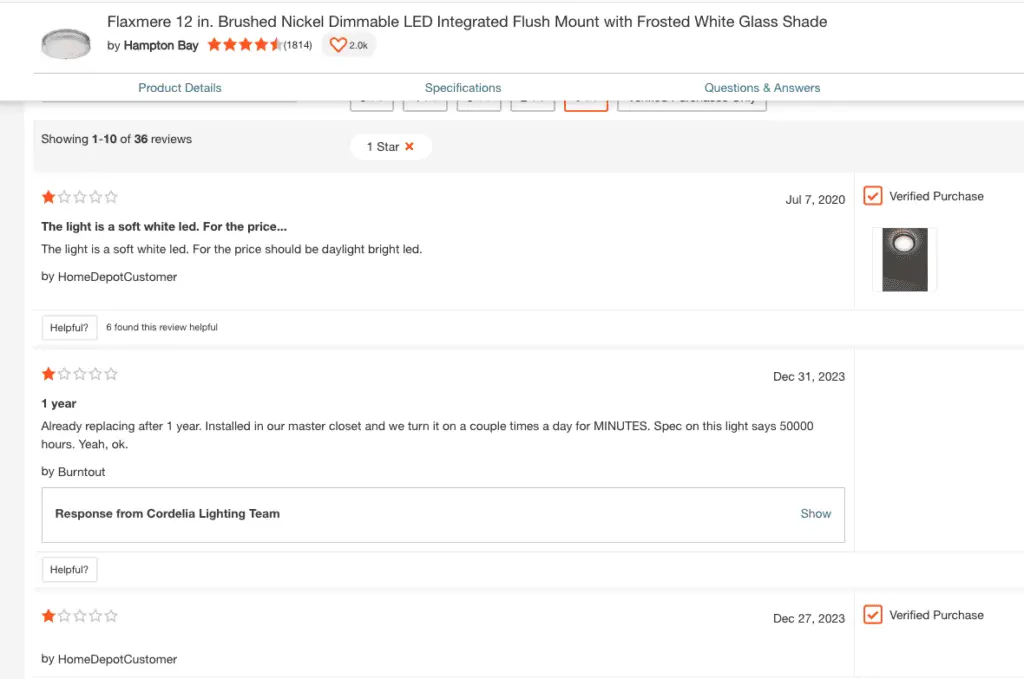
Plus, if you do the math on this light, the numbers don’t add up. This product claims the light should last 45 years at 3 hours use/day. However, the product warranty is only 3 years. That doesn’t seem right for such a stellar LED, does it? Why not offer a longer warranty?
Let’s just say I’m skeptical about that lifespan on a $25 fixture.
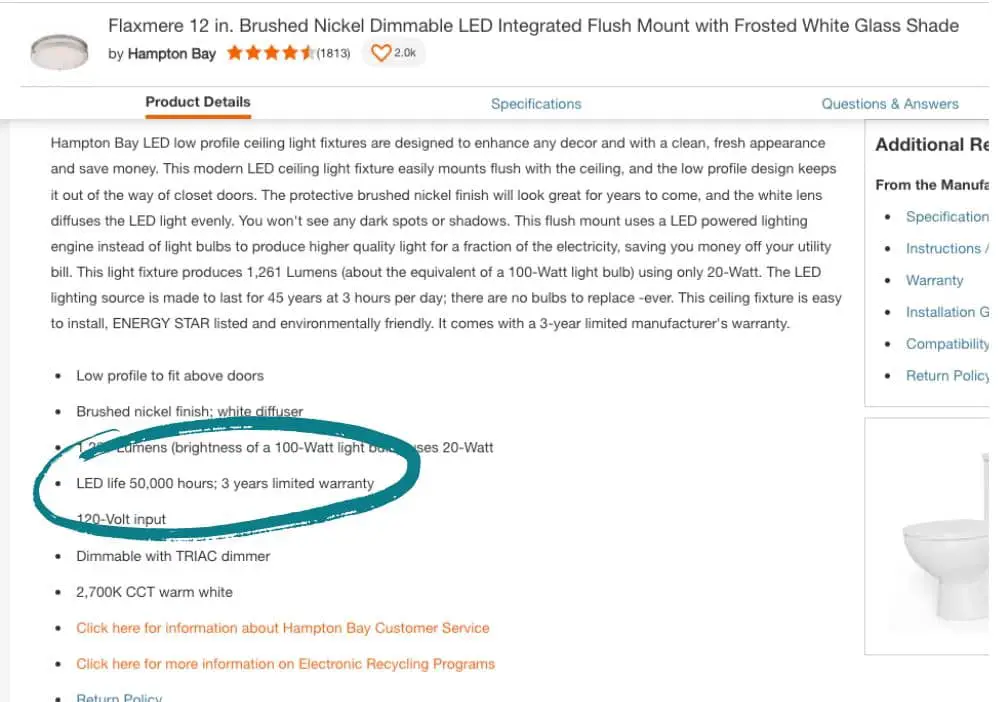
Even if I’m guessing wrong, and this light fixture will truly last 45 years, I would still prefer a light with a replaceable bulb. Just to hedge my bets…
So What Should You Buy?
It’s hard to find the perfect light that fits your style, budget, and room specifications. Shopping for new light fixtures is not for the faint of heart.
Especially if you’re shopping for a flush mount, it’s challenging to find affordable, modern designs that are not integrated LED lights. They dominate the flush mount category now.
Here are a few of my previous lighting blog posts. (There are a few integrated LEDs, because I hadn’t yet developed such negative feelings about them. Ha.)
61 Modern Flush Light Fixtures From Amazon
Outdoor Ceiling Lights Under $120
How to Choose Light Fixtures for Your Home
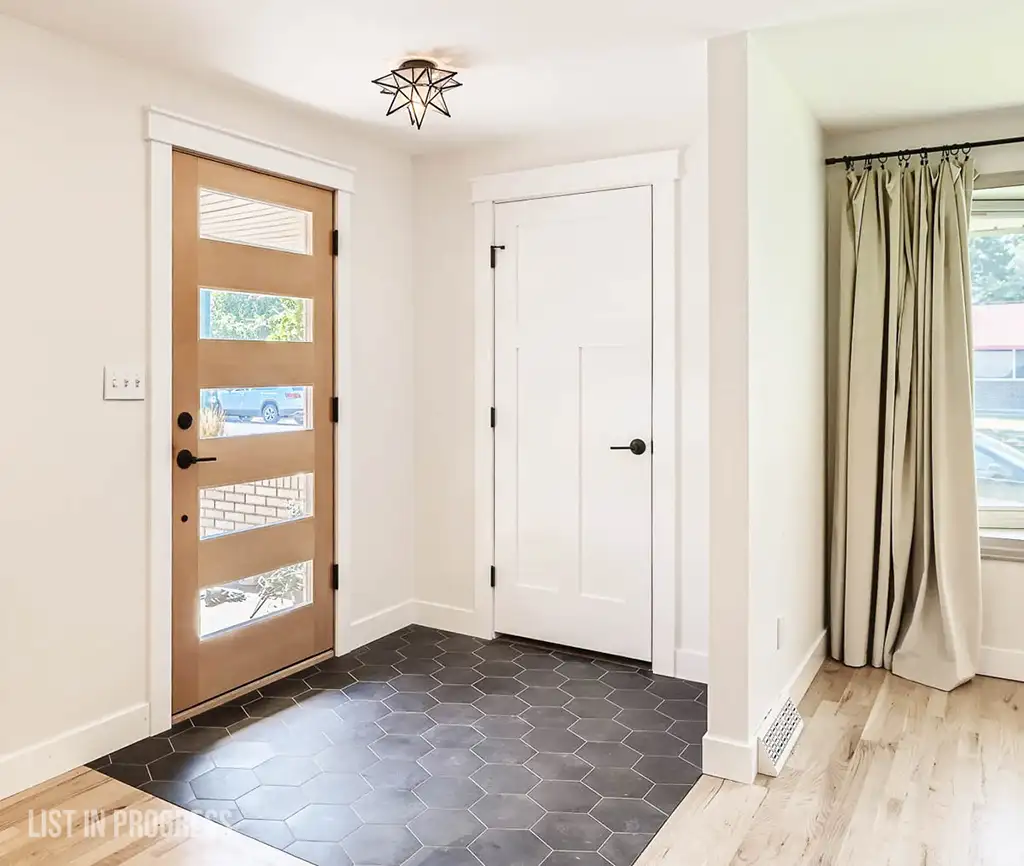
As you shop online, check the details of your favorite lights. If you see the words “integrated LED” then you’ll know the bulbs can’t be replaced.
Look for specs about the bulb requirements. “E26/medium screw” reference the traditional light bulb base. Voltage and watts are less critical if you plan to use LED bulbs, because that’s the brilliant innovation of LED lighting. It draws less energy.
You can also adjust your search for products that work with incandescent bulbs, to weed out integrated LED options. Here’s what the results look like for flush mount lights at these retailers:
Home Depot | Lowes | Amazon | Build.com
My holy grail is a modern flush mount light with 3+ replaceable bulbs. The standard overhead light for bedrooms and offices.
I’m still hunting for a new model for our current remodeling projects… you can read about our plans here:
Home Renovations Planned for Our New House
Good luck to you!
